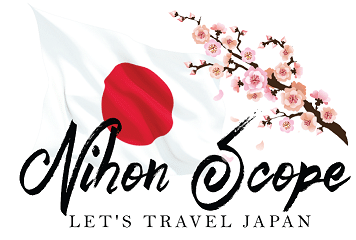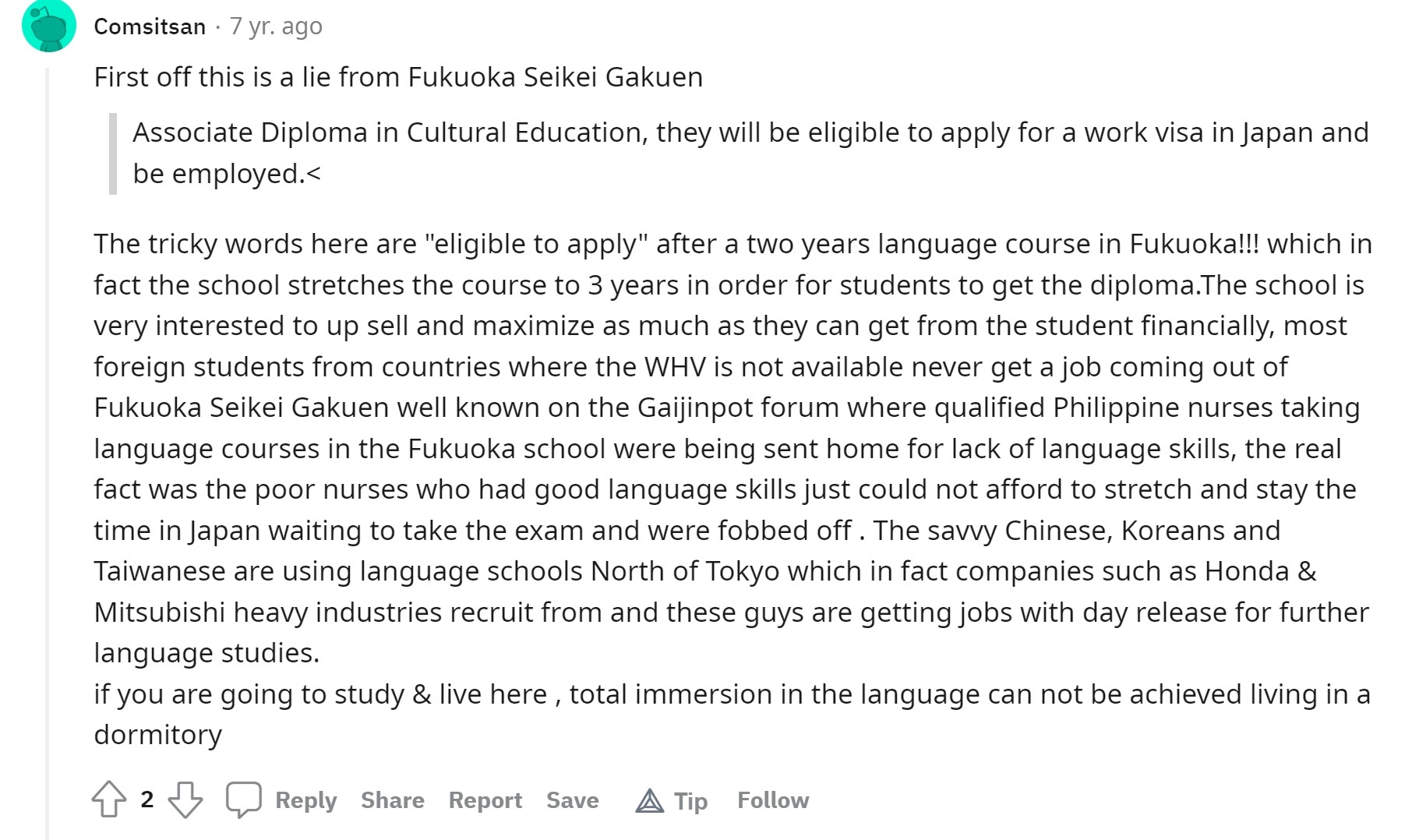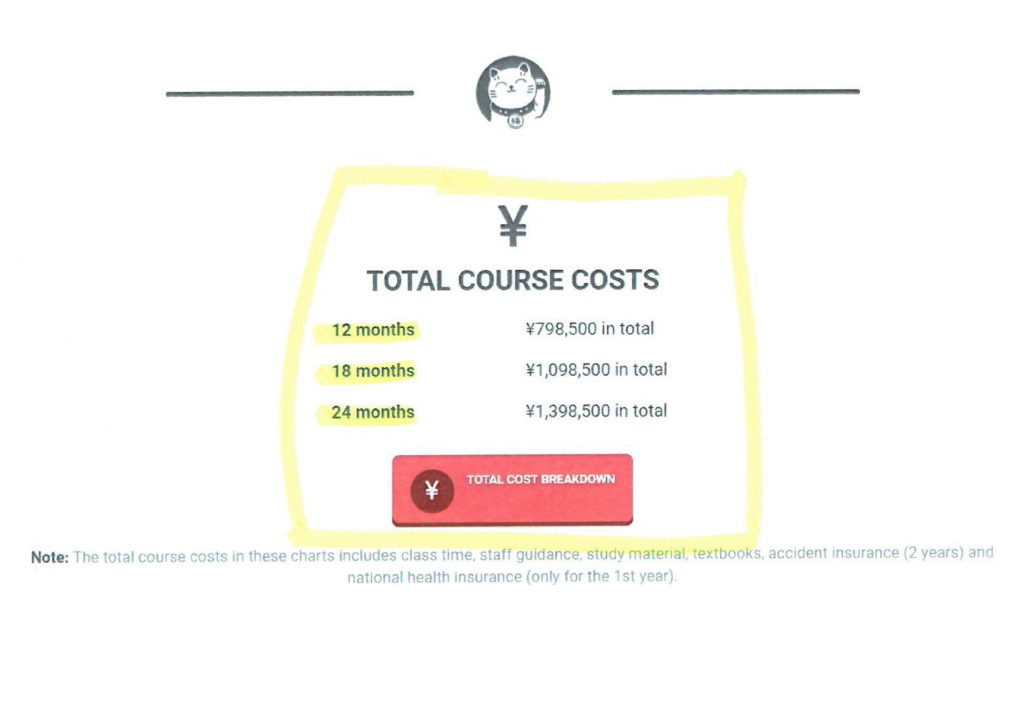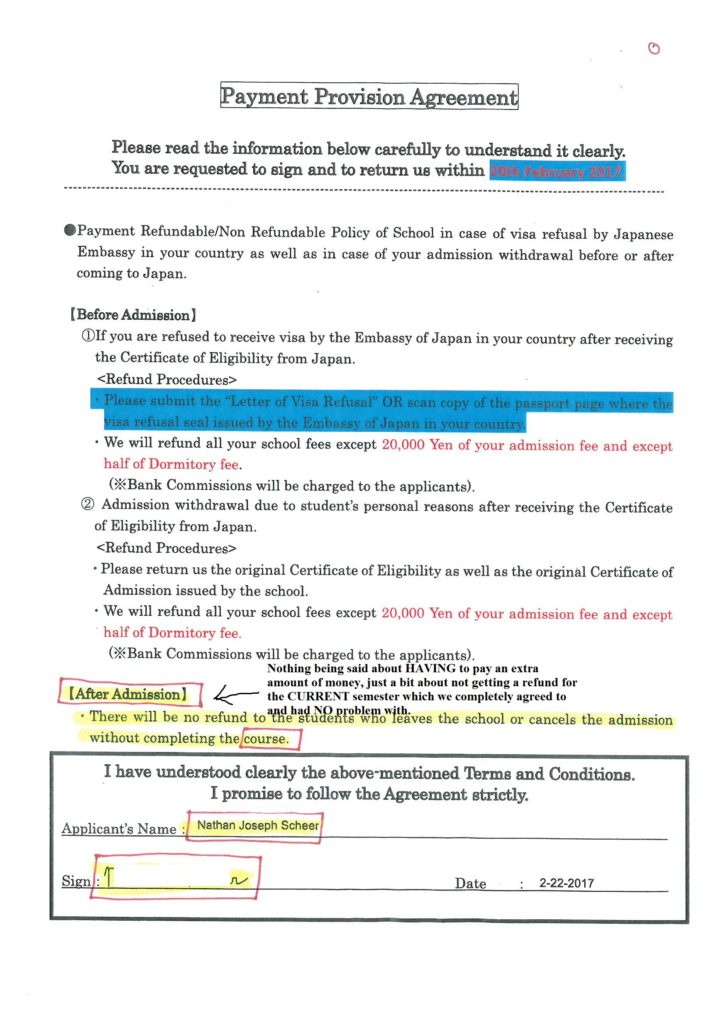Navigation bar: Click on a Subject Title below to Jump to that section of this post.
Particles – Dictionary Form – て形 – た形 – ない形
Group I – Dictionary Form for Group I – て形 for Group I – た形 for Group I – ない形 for Group I
Group II – Dictionary Form for Group II – て形 for Group II – た形 for Group II – ない形 for Group II
Group III – Dictionary Form for Group III – て形 for Group III – た形 for Group III – ない形 for Group III
Group I
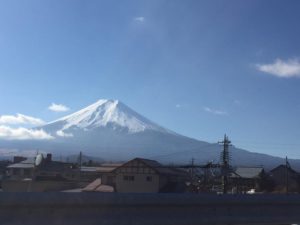 First of all, in Japanese verbs are categorized into three groups. My understanding is that they are categorized by the consonant before ます. Group I verbs have a character ending in “I” before ます. That means い、き、ぎ、び、り、ち、み、し、and に. There is only one に verb which is しに which means to die. It is not included in the Minna No Nihongo book though.
First of all, in Japanese verbs are categorized into three groups. My understanding is that they are categorized by the consonant before ます. Group I verbs have a character ending in “I” before ます. That means い、き、ぎ、び、り、ち、み、し、and に. There is only one に verb which is しに which means to die. It is not included in the Minna No Nihongo book though.
I have arranged the Group I verbs taught in Minna No Nihongo Elementary Japanese I by the character before ます:
いいます (Say)
あいます (meet)
かいます (buy)
すいます (smoke)
あらいます (Wash)
うたいます (sing)
おもいます (think)
つかいます (use)
はらいます (pay)
ならいます (learn)
もらいます (receive)
てつだいます (help (with a task))
いきます (go)
おきます (Put)
かきます (Write, draw, paint)
ききます (hear, listen, ask (someone))
はきます (Wear, put on (clothes, shoes))
ひきます (play (instrument), pull)
つきます (arrive)
あるきます (Walk)
うごきます (move, work )
はたらきま (work)
もっていきます (take something)
つれていきます (take (someone))
ぬぎます (take off (clothes, shoes))
いそぎます (hurry)
およぎます (swim)
あります (have, exist, be (inanimate), be held (an event), take place)
いります (need, require)
うります (sell)
きります (cut, slice)
ふります (rain)
なります (Become)
のります (ride, get on (train))
しります (get to know)
とります (take, pass, grow old)
おくります (escort, go with)
おわります (finish)
かえります (go home, return)
かかります (take, cost)
つくります (make, produce)
かぶります (put/wear on my head)
さわります (Touch)
すわります (sit down)
とまります (stay (somewhere))
わかります (understand)
わたります (Cross over (a bridge/road))
のぼります (Climb, go up)
まがります (turn (to the right), bend)
はいります (enter (a place), take (a bath))
がんばります (do one’s best)
かします (lend)
けします (turn off)
おします (push, press)
だします (take out, hand in, send)
かえします (give back, return)
おろします (withdraw)
なおします (repair, correct)
なくします (lose)
はなします (speak, talk)
まわします (turn, rotate, spin, revolve, turn round, wander around)
おもいだします (remember, recollect)
かちます (win)
まちます (wait)
もちます (hold)
たちます (stand up)
やくにたちます (be useful/helpful)
すみます (be going to live)
のみます (drink, take (medicine))
よみます (read)
やすみます (Rest, take a holiday, take a day off)
あそびます (enjoy oneself, play)
よびます (Call)
Here is Japanese Verbs Group I Organized List Lined Up
Group II
Group II verbs have a character ending in “E” before ます. That means: え、け、げ、め、れ、べ、て、で、ね、and せ. However, with Group II has some います、きます、びます、ります, and みます verbs should be in Group I because they are IMASU verbs, but they are our first EXCEPTION. The significance of the grouping lies in conjugating them into different forms.
Here is a list of the verbs in Group II that are taught in Minna No Nihongo Elementary Japanese Book I:
います (exist, be (animate), have (a child), stay, be (somewhere))
おしえます (teach, tell (something))
むかえます (go to meet, Welcome)
のりかえます change, Transfer (trains))
きます (put on (clothes))
おきます (get up, wake up)
できます (be able to, can)
みます (see, look at, watch)
でます (change, come out, go out (of someplace))
ねます (sleep, go to bed)
あけます (open)
かけます (make (a phone call), put on (glasses))
まけます (lose, be beaten)
つけます (turn on)
きをつけます (pay attention, be careful, take care)
でかけます (go out)
あげます (Give me)
あびます (take (a shower))
しらべます (check, investigate)
たべます (eat)
いれます (Put in, insert)
うまれます (be born)
つかれます (get tired)
わすれます (Forget)
かえます (change)
たります (be enough, be sufficient)
かります (borrow)
くれます (Give (me))
しめます (close/shut)
とめます (graduate (from University), stop, park)
やめます (quit, retire, stop, give up)
あつめます (collect, gather)
はじめます (start, begin)
すてます (discard, throw away)
みせます (show)
In order to remember which verbs ending in います, きます, びます, or ります which should be in group one but aren’t; remember that You GET UP, TAKE A SHOWER, BORROW a towel, PUT ON A SHIRT, ARE ABLE TO catch your train, GET OFF THE TRAIN, and be glad to BE ALIVE because you can SEE that you have ENOUGH to make you happy ![]() and you can remember the verbs that don’t end in E but are in group two
and you can remember the verbs that don’t end in E but are in group two ![]() Knowing this will help you to remember which “I”ます verbs do not follow the conjugation rules for group I.
Knowing this will help you to remember which “I”ます verbs do not follow the conjugation rules for group I.
おきます (get up, wake up)
あびます (take (a shower))
かります (borrow)
きます (put on (clothes))
できます (be able to, can)
おります (get off (a train))
います (exist, be (animate), have (a child), stay, be (somewhere))
みます (see, look at, watch)
たります (be enough, be sufficient)
Group III
Group III verbs are mainly します verbs with only a couple きます exception verbs. The verb きます, as well as つれてきます and もってきます, are in Group III. That is a fairly easy exception to remember. To remember that つれてきます and もってきます are in Group III and not つれていきます and もっていきます (which mean to take someone/something), remember that きます means to come, and when you are asked to COME somewhere you BRING someone/something with you, but いきます means to go and when you GO (or leave somewhere) you TAKE someone/something with you. いきます verbs are in group I. Group III verbs included in the Minna No Nihongo Elementary Japanese Book are:
あんないします (show around, show the way)
うんてんします (drive)
かいものします (go shopping)
きます (come)
けっこんします (marry, get married)
けんがくします (visit a place to study it, tour)
けんきゅうします (research)
コピーします (copy)
さんぽします (take a walk)
ざんぎゅうします (work overtime)
します (do, play, put on a tie)
しゅうりします (repair)
しゅっちょうします (go on a business trip)
しょうかいします (introduce)
しょくじします (have a meal, dine, eat)
しんぱいします (worry)
せつめいします (explain)
せんたくします (wash (clothes), do laundry )
そうじします (clean)
つれてきます (bring (someone))
でんわします (use phone (call))
べんきょうします (study)
もってきます (bring (something))
よやくします (reserve, book)
りゅうがくします (study abroad)
To remember which します verbs are exceptions and are in Group I rather than Group III, REMEMBER to PUSH the button to make a WITHDRAW and TURN the automatic withdrawal OFF so that you can TAKE OUT the money you need to RETURN to your friend who you LENT money to and who you hardly ever TALK to but are making an attempt to REPAIR your relationship with them before you LOSE them as a friend. Remembering these verbs will help you to know that these verbs follow the conjugation rules for Group I.
おもいだします (remember, recollect)
おします (push, press)
おろします (withdraw)
まわします (turn, rotate, spin, revolve, turn around, wander around)
だします (take out, hand in, send)
けします (turn off)
かえします (give back, return)
かします (lend)
はなします (speak, talk)
なおします (repair, correct)
なくします (lose)
Forms & Conjugation
Dictionary Form
also known as 辞書形(じしょけ), is used before the expression ことができます(to be able to) as well as before ことです(when the verb is the last word in a sentence) and before まえに when something is dome before something else. Here is a helpful course to help review the list of verbs in Dictionary Form. Dictionary form conjugation for
Group I
is that the all of the “I”s before ます are turned into “U”s. That means い becomes う、き becomes く、ぎ becomes ぐ、び becomes ぶ、りbecomes る、ち becomes つ、み becomes む、し becomes す、and に becomes ぬ. Remember that certain “I”ます verbs are in group II and do not follow this rule. Click here to review the list of exception verbs in Group II.
あう meet
あそぶ enjoy oneself, play
あらう Wash
ある have, exist, be (inanimate), be held (an event), take place
あるく Walk
いう Say
いく go
いそぐ hurry
いる need, require
うごく move, work
うたう sing
うる sell
おく Put
おくる escort, go with
おす push, press
おもいだす remember, recollect
おもう think
およぐ swim
おろす withdraw
おわる finish
かう buy
かえす give back, return
かえる go home, return
かかる take, cost
かく Write, draw, paint
かす lend
かつ win
かぶる put/wear on my head
がんばる do one’s best
きく hear, listen, ask (someone)
きる cut, slice
けす turn off
さわる Touch
しる get to know
すう smoke
すむ be going to live
すわる sit down
だす take out, hand in, send
たつ stand up
つかう use
つく arrive
つくる make, produce
つれていく take (someone)
てつだう help (with a task)
とまる stay (somewhere)
とる take, pass, grow old
なおす repair, correct
なくす lose
ならう learn
なる Become
ぬぐ take off (clothes, shoes)
のぼる Climb, go up
のむ drink, take (medicine)
のる ride, get on (train)
はいる enter (a place), take (a bath)
はく Wear, put on (clothes, shoes)
はたらく work
はなす speak, talk
はらう pay
ひく play (instrument), pull
ふる rain
まがる turn (to the right), bend
まつ wait
まわす turn, rotate, spin, revolve, turn around, wander around
もつ hold
もっていく take something
もらう receive
やくにたつ be useful/helpful
やすむ Rest, take a holiday, take a day off
よぶ Call
よむ read
わかる understand
わたる Crossover (a bridge/road)
The conjugation for Dictionary Form for verbs in
Group II
works by removing ます and adding る. Remember that there are certain “I”ます verbs in group II. Click here to review the list of exception verbs in Group II.
あける open
あげる Give me
あつめる collect, gather
あびる take (a shower)
いる exist, be (animate), have (a child), stay, be (somewhere)
いれる Put in, insert
うまれる be born
おきる get up, wake up
おしえる teach, tell (something)
おぼえる memorize
おりる get off (a train)
かえる change
かける make (a phone call), put on (glasses)
かりる borrow
かんがえる think, consider
きる put on (clothes)
きをつける pay attention, be careful, take care
くれる Give (me)
しめる close/shut
しらべる check, investigate
すてる discard, throw away
たべる eat
たりる be enough, be sufficient
つかれる get tired
つける turn on
でかける go out
できる be able to, can
でる change, come out
でる go out (of someplace)
とめる graduate (from University), stop, park
ねる sleep, go to bed
のりかえる change, Transfer (trains)
はじめる start, begin
まける lose, be beaten
みせる show
みる see, look at, watch
むかえる go to meet, Welcome
やめる quit, retire, stop, give up
わすれる Forget
The conjugation of Dictionary Form for verbs in
Group III
is a combination of the Dictionary Form conjugation of group one (し becomes す and き becomes く) and る is added on the end. Remember that not all します verbs are in Group III, some are in Group I. Review which します verbs are in Group I.
あんないする show around, show the way
うんてんする drive
かいものする go shopping
くる come
けっこんする marry, get married
けんがくする visit a place to study it, tour
けんきゅうする research
コピーする copy
さんぽする take a walk
ざんぎょうする work overtime
する do, play, put on a tie
しゅうりする repair
しゅっちょうする go on a business trip
しょうかいする introduce
しょくじする have a meal, dine, eat
しんぱいする worry
せつめいする explain
せんたくする wash (clothes), do laundry
そうじする clean
つれてくる bring (someone)
でんわする use phone (call)
べんきょうする study
もってくる bring (something)
よやくする reserve, book
りゅうがくする study abroad
て形
is used as a command alone or before phrases like: もいいです, ください, はいけません, います, and にいます. て form is also used to list actions in order of completion separated by commas and ending with a verb in ます form to indicate either present/future completion or past completion. (In order to list actions done in general, た形 is used in conjunction with り and ending in います). Here is a helpful tool to help you review and memorize the list of て形 verbs.
Group I
has the most rules and is probably the most complex. ち、り、い become っ (a small つ) with a て on the end. き becomes い except for the EXCEPTION of いきます where the き becomes a っ (a small つ) both with て on the end. for ぎ the ten-ten (“) move onto the て so it becomes いで. み、び, に become んで. and します verbs simply have the ます removed and a て added. Here is a little song to help remember the て form conjugation rules for Group I
あって meet
あそんで enjoy oneself, play
あらって Wash
あって have, exist, be (inanimate), be held (an event), take place
あるいて Walk
いって Say
いって go
いそいで hurry
いって need, require
うごいて move, work
うたって sing
うって sell
おいて Put
おくって escort, go with
おして push, press
おもいだして remember, recollect
おもって think
およいで swim
おろして withdraw
おわって finish
かって buy
かえして give back, return
かえって go home, return
かかって take, cost
かいて Write, draw, paint
かして lend
かって win
かぶって put/wear on my head
がんばって do one’s best
きいて hear, listen, ask (someone)
きって cut, slice
けして turn off
さわって Touch
しって get to know
すって smoke
すんで be going to live
すわって sit down
だして take out, hand in, send
たって stand up
つかって use
ついて arrive
つくって make, produce
つれていって take (someone)
てつだって help (with a task)
とまって stay (somewhere)
とって take, pass, grow old
なおして repair, correct
なくして lose
ならって learn
なって Become
ぬいで take off (clothes, shoes)
のぼって Climb, go up
のんで drink, take (medicine)
のって ride, get on (train)
はいって enter (a place), take (a bath)
はいて Wear, put on (clothes, shoes)
はたらいて work
はなして speak, talk
はらって pay
ひいて play (instrument), pull
ふって rain
まがって turn (to the right), bend
まって wait
まわして turn, rotate, spin, revolve, turn around, wander around
もって hold
もっていって take something
もらって receive
やくにたって be useful/helpful
やすんで Rest, take a holiday, take a day off
よんで Call
よんで read
わかって understand
わたって Cross over (a bridge/road)
て形 for Group II
is simple: the ます removed and a て is added.
あけて open
あげて Give me
あつめて collect, gather
あびて take (a shower)
いて exist, be (animate), have (a child), stay, be (somewhere)
いれて Put in, insert
うまれて be born
おきて get up, wake up
おしえて teach, tell (something)
おぼえて memorize
おりて get off (a train)
かえて change
かけて make (a phone call), put on (glasses)
かりて borrow
かんがえて think, consider
きて put on (clothes)
きをつけて pay attention, be careful, take care
くれて Give (me)
しめて close/shut
しらべて check, investigate
すてて discard, throw away
たべて eat
たりて be enough, be sufficient
つかれて get tired
つけて turn on
でかけて go out
できて be able to, can
でて change, come out
でて go out (of someplace)
とめて graduate (from University), stop, park
ねて sleep, go to bed
のりかえて change, Transfer (trains)
はじめて start, begin
まけて lose, be beaten
みせて show
みて see, look at, watch
むかえて go to meet, Welcome
やめて quit, retire, stop, give up
わすれて Forget
て形 for Group III
also simply has the ます removed and a て is added. Just like in Group I します becomes して and the きます verbs become きて.
あんないして show around, show the way
うんてんして drive
かいものして go shopping
きて come
けっこんして marry, get married
けんがくして visit a place to study it, tour
けんきゅうして research
コピーして copy
さんぽして take a walk
ざんぎゅうして work overtime
して do, play, put on a tie
しゅうりして repair
しゅっちょうして go on a business trip
しょうかいして introduce
しょくじして have a meal, dine, eat
しんぱいして worry
せつめいして explain
せんたくして wash (clothes), do laundry
そうじして clean
つれてきて bring (someone)
でんわして use phone (call)
べんきょうして study
もってきて bring (something)
よやくして reserve, book
りゅうがくして study abroad
た形
can be thought of as the た in ました when translating formal speech into informal (ふつう体/ふつう形) speech. た形 is used before the expression たことがあります to express having done something in general. た形 is used before り to express in general a list of things that were done with します at the end to indicate that there are other small things that were done as well. When listing actions done in た形, it is not correct to state actions that are done every day (like eating or sleeping). (When listing actions in order of completion, て形 is used). Also be sure to not get た形 confused with たいです (to want) or たくない (to not want) where the root of the verb is attached rather than conjugated into た形. For verbs in Group II and III it will be the same either way, but for Group I verbs it is very important.
Study た形 list of verbs included in Minna No Nihongo book I.
た形 for Group I
(and both other groups as well) is identical to て形 except that た is used instead of て (and だ instead of で). ち、り、い become っ (a small つ) and た is added on the end. き becomes い except for the EXCEPTION of いきます where the き becomes a っ (a small つ) both with た on the end. for ぎ the ten-ten (“) move onto the た so it becomes いだ. み、び, に become んだ. and します verbs simply have the ます removed and a た added.
あった meet
あそんだ enjoy oneself, play
あらった Wash
あった have, exist, be (inanimate), be held (an event), take place
あるいた Walk
いった Say
いった go
いそいだ hurry
いった need, require
うごいた move, work
うたった sing
うった sell
おいた Put
おくった escort, go with
おした push, press
おもいだした remember, recollect
おもった think
およいだ swim
おろした withdraw
おわった finish
かった buy
かえした give back, return
かえった go home, return
かかった take, cost
かいた Write, draw, paint
かした lend
かった win
かぶった put/wear on my head
がんばった do one’s best
きいた hear, listen, ask (someone)
きった cut, slice
けした turn off
さわった Touch
しった get to know
すった smoke
すんだ be going to live
すわった sit down
だした take out, hand in, send
たった stand up
つかった use
ついた arrive
つくった make, produce
つれていった take (someone)
てつだった help (with a task)
とまった stay (somewhere)
とった take, pass, grow old
なおした repair, correct
なくした lose
ならった learn
なった Become
ぬいだ take off (clothes, shoes)
のぼった Climb, go up
のんだ drink, take (medicine)
のった ride, get on (train)
はいった enter (a place), take (a bath)
はいた Wear, put on (clothes, shoes)
はたらいた work
はなした speak, talk
はらった pay
ひいた play (instrument), pull
ふった rain
まがった turn (to the right), bend
まった wait
まわした turn, rotate, spin, revolve, turn around, wander around
もった hold
もったいった take something
もらった receive
やくにたった be useful/helpful
やすんだ Rest, take a holiday, take a day off
よんだ Call
よんだ read
わかった understand
わたった Cross over (a bridge/road)
Group II
conjugation for た form is also identical to て form except that た is used instead of て. ます is removed and た is added.
あけた open
あげた Give me
あつめた collect, gather
あびた take (a shower)
いた exist, be (animate), have (a child), stay, be (somewhere)
いれた Put in, insert
うまれた be born
おきた get up, wake up
おしえた teach, tell (something)
おぼえた memorize
おりた get off (a train)
かえた change
かけた make (a phone call), put on (glasses)
かりた borrow
かんがえた think, consider
きた put on (clothes)
きをつけた pay attention, be careful, take care
くれた Give (me)
しめた close/shut
しらべた check, investigate
すてた discard, throw away
たべた eat
たりた be enough, be sufficient
つかれた get tired
つけた turn on
でかけた go out
できた be able to, can
でた change, come out
でた go out (of someplace)
とめた graduate (from University), stop, park
ねた sleep, go to bed
のりかえた change, Transfer (trains)
はじめた start, begin
まけた lose, be beaten
みせた show
みた see, look at, watch
むかえた go to meet, Welcome
やめた quit, retire, stop, give up
わすれた Forget
た形 for Group III
verbs is also identical to て form except that た is used instead of て. します becomes した and きます becomes きた.
あんないした show around, show the way
うんてんした drive
かいものした go shopping
きた come
けっこんした marry, get married
けんがくした visit a place to study it, tour
けんきゅうした research
コピーした copy
さんぽした take a walk
ざんぎゅうした work overtime
した do, play, put on a tie
しゅうりした repair
しゅっちょうした go on a business trip
しょうかいした introduce
しょくじした have a meal, dine, eat
しんぱいした worry
せつめいした explain
せんたくした wash (clothes), do laundry
そうじした clean
つれてきた bring (someone)
でんわした use phone (call)
べんきょうした study
もってきた bring (something)
よやくした reserve, book
りゅうがくした study abroad
ない形
is the NEGATIVE verb form used in expressions such as ないでください(please DO NOT), なければなりません(to have to), なくてもいいです (NOT (good) – don’t do). Study NA form conjugations.
ない形 for Group I
verb conjugation into ない form is similar to Dictionary form except that the “I”s before ます are turned into “A”s. Except that い instead of becoming a straight up “あ” it becomes わ instead、and き becomes か、ぎ becomes が、び becomes ば、りbecomes ら、ち becomes た、み becomes ま、し becomes さ、and に becomes な. Make sure to know what “I”ます verbs are in group II and are not conjugated the same for ない形.
あわない meet
あそばない enjoy oneself, play
あらわない Wash
あらない have, exist, be (inanimate), be held (an event), take place
あるかない Walk
いわない Say
いかない go
いそがない hurry
いらない need, require
うごかない move, work
うたわない sing
うらない sell
おかない Put
おくらない escort, go with
おさない push, press
おもいださない remember, recollect
おもわない think
およがない swim
おろさない withdraw
おわらない finish
かわない buy
かえさない give back, return
かえらない go home, return
かからない take, cost
かかない Write, draw, paint
かさない lend
かたない win
かぶらない put/wear on my head
がんばらない do one’s best
きかない hear, listen, ask (someone)
きらない cut, slice
けさない turn off
さわらない Touch
しらない get to know
すわない smoke
すまない be going to live
すわらない sit down
ださない take out, hand in, send
たたない stand up
つかわない use
つかない arrive
つくらない make, produce
つれていかない take (someone)
てつだわない help (with a task)
とまらない stay (somewhere)
とらない take, pass, grow old
なおさない repair, correct
なくさない lose
ならわない learn
ならない Become
ぬがない take off (clothes, shoes)
のぼらない Climb, go up
のまない drink, take (medicine)
のらない ride, get on (train)
はいらない enter (a place), take (a bath)
はかない Wear, put on (clothes, shoes)
はたらかない work
はなさない speak, talk
はらわない pay
ひかない play (instrument), pull
ふらない rain
まがらない turn (to the right), bend
またない wait
まわさない turn, rotate, spin, revolve, turn round, wander around
もたない hold
もっていかない take something
もらわない receive
やくにたたない be useful/helpful
やすまない Rest, take a holiday, take a day off
よばない Call
よまない read
わからない understand
わたらない Cross over (a bridge/road)
ない形 for Group II
な form is like Dictionary Form as well. ます is removed and な is added.
おりない get off (a train)
かえない change
かけない make (a phone call), put on (glasses)
かりない borrow
かんがえない think, consider
きない put on (clothes)
きをつけない pay attention, be careful, take care
くれない Give (me)
しめない close/shut
しらべない check, investigate
すてない discard, throw away
たべない eat
たりない be enough, be sufficient
つかれない get tired
つけない turn on
でかけない go out
できない be able to, can
でない change, come out
でない go out (of someplace)
とめない graduate (from University), stop, park
ねない sleep, go to bed
のりかえない change, Transfer (trains)
はじめない start, begin
まけない lose, be beaten
みせない show
みない see, look at, watch
むかえない go to meet, Welcome
やめない quit, retire, stop, give up
わすれない Forget
Conjugation of verbs into な形 for verbs in
ない形 for Group III
is just like dictionary form as well. ます is removed and な is added. します becomes しな and きます becomes きな. Make sure you remember which します verbs are in Group I.
あんないしない show around, show the way
うんてんしない drive
かいものしない go shopping
こない come
けっこんしない marry, get married
けんがくしない visit a place to study it, tour
けんきゅうしない research
コピーしない copy
さんぽしない take a walk
ざんぎょうしない work overtime
しない do, play, put on a tie
しゅうりしない repair
しゅっちょうしない go on a business trip
しょうかいしない introduce
しょくじしない have a meal, dine, eat
しんぱいしない worry
せつめいしない explain
せんたくしない wash (clothes), do laundry
そうじしない clean
つれてこない bring (someone)
でんわしない use phone (call)
べんきょうしない study
もってこない bring (something)
よやくしない reserve, book
りゅうがくしない study abroad
For the expression に(い)きます as well as ましょう, verbs in ます form simply have the ます removed which is called PLAIN form.
Verb Particles
で = at / by means of / with (object)
に = to / on / in
と = with (along with – also with)
Here is a list of verbs with specific particles other than the typical を:
あいます (meet) に
います(stay, be (somewhere)) に
はいります (enter (a place), take (a bath)) に
ききます (ask (someone)) に
さわります (Touch) に
とまります (stay (somewhere)) に
のります (ride, get on (train)) に
いきます (go) へ / に
まがります (turn (to the right), bend) へ
あります (have, exist, be (inanimate), be held (an event), take place) が
いります (need, require) が
できます (be able to, can) が
でます (change, come out) が
ふります (rain) が
います (exist, be (animate), have (a child)) が
でます (change, come out) が
Here is a course to practice matching a noun and particle with the correct verb. There are some examples with を if an example was given for the verb.
